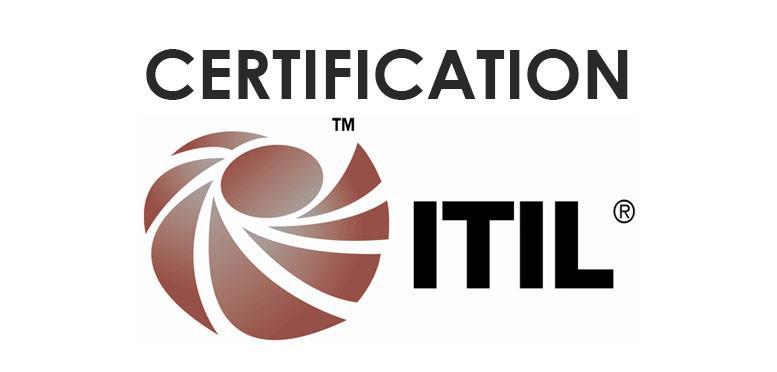ITIL or Information Technology Infrastructure Library certification consists of 5 different levels – Foundation, Practitioner, Intermediate, Expert, and Master.
The Intermediate level is the only level that is module-based and consists of 5 Service Lifecycle modules and 4 Service Capability modules.
With an ITIL certification, candidates have the option to either take one module or choose multiple ones from both Service Lifecycle and Service Capability.

The Service Capability module includes:
- Operational Support and Analysis (OSA)
- Planning, Protection, and Optimization (PPO)
- Release, Control, and Validation (RCV)
- Service Offerings and Agreements (SOA)
Here, you get all the details of the Service Capability module.
-
Table of Contents
Operational Support and Analysis (OSA):-
The primary purpose of Operational Support and Analysis (OSA) is to teach, examine, and corroborate the knowledge of an individual in IT Service Management practises.
Individuals with the ITIL OSA certification will be efficient in:
- Optimising service operations performance.
- Determining the risk factors, challenges, and success factors related to
- Knowing how OSA functions and work with Service Lifecycle ones.
- Learning how various OSA methods aid in supporting business operations.
- How considerations as well as technology work for OSA implementation?
After getting certified in ITIL OSA, individuals will get to take part in roles like management of problem, application, service, access, technical, incident, event, request, IT operations, and request fulfilment.
-
Planning, Protection, and Optimization (PPO)
Planning, Protection, and Optimization (PPO) ensures that technology architecture, service management systems and tools, new and updated services, methods and metrics, and processes and measurement systems are developed in a way that can cater to customer requirements.
Individuals will learn the following after completion of this certification:
- Responsibilities and roles related to planning, protection, and optimization.
- Potential for availability and capacity management.
- Service design concerning lifecycle and PPO
Individuals with this certification can provide their applications in management of capacity, demand, availability, information security, and IT service continuity.
-
Release, Control and Validation (RCV)
The Release, Control and Validation (RCV) certification works for making individuals understand the Service Transition processes. It makes sure that new services are examined and corroborated, transitional changes are managed efficiently, and deployment of services fulfils business needs.
Individuals with this certification learn the following:
- Measuring ITIL release, control, and validation.
- Potential for change management to comprehend a service transition successfully.
- Risk factors along with implementation considerations and technology associated with release, control and validation.
A RCV certified individual can provide his/her applications in management of release and deployment, change evaluation, request fulfilment, service asset and configuration, and service asset and configuration.
-
Service Offerings and Agreements
The Service Offerings and Agreements offer individuals a thorough knowledge of the five lifecycle stages.
Certified individuals know:
- Roles and responsibilities of SOA.
- Importance of SOA in organisations.
- Risk factors, challenges, and success factors involved.
SOA certified candidates provide their application in management of service level, catalog, portfolio, supplier, demand, and business relationship.

 IALM: Law Education at its Best
IALM: Law Education at its Best 10th Class Result 2018 Will Be Revealed In July
10th Class Result 2018 Will Be Revealed In July Meaningful Learning: Importance in Medical Education
Meaningful Learning: Importance in Medical Education Choose Microsoft Training Programs to Improve Employment
Choose Microsoft Training Programs to Improve Employment 5 Best Researched Ways of Early Childhood Education
5 Best Researched Ways of Early Childhood Education Bringing Bible Study Back Post COVID: How to Stay Safe
Bringing Bible Study Back Post COVID: How to Stay Safe Master degree in Marketing from France
Master degree in Marketing from France Top Reasons to opt for BDS Courses
Top Reasons to opt for BDS Courses How to Build a Career in Engineering?
How to Build a Career in Engineering? Things You Need to Know About Becoming a Nurse Educator
Things You Need to Know About Becoming a Nurse Educator 10th Class Result Announced Date 2019 Gujranwala Board
10th Class Result Announced Date 2019 Gujranwala Board Engineering Diploma Colleges in Uttarakhand That Offer Quality Education
Engineering Diploma Colleges in Uttarakhand That Offer Quality Education Why Use a Recruitment Agency? Advantages, Fees and Everything You Need to Know When Using These Companies
Why Use a Recruitment Agency? Advantages, Fees and Everything You Need to Know When Using These Companies How to Increase Essay and Report Writing Skills
How to Increase Essay and Report Writing Skills